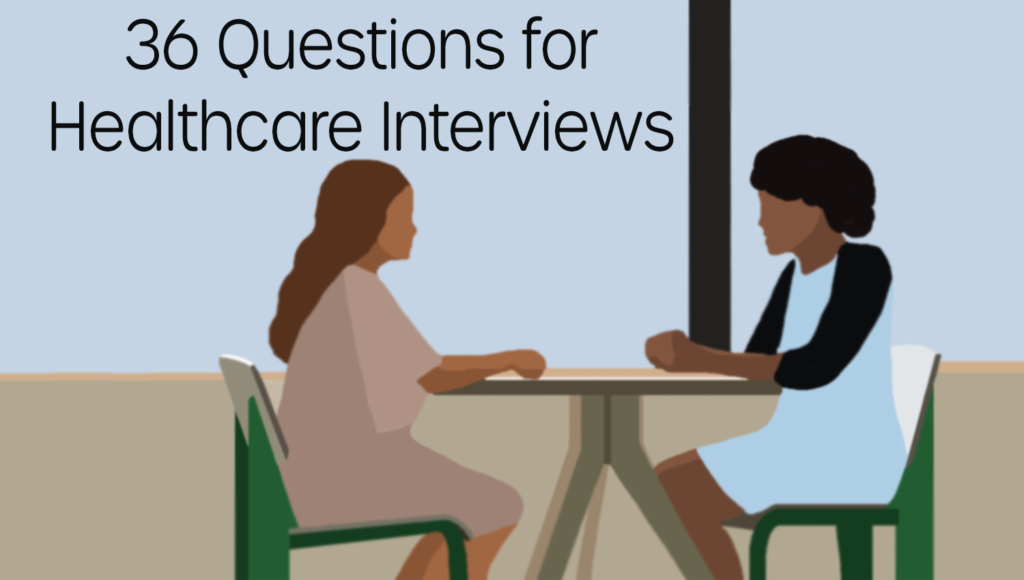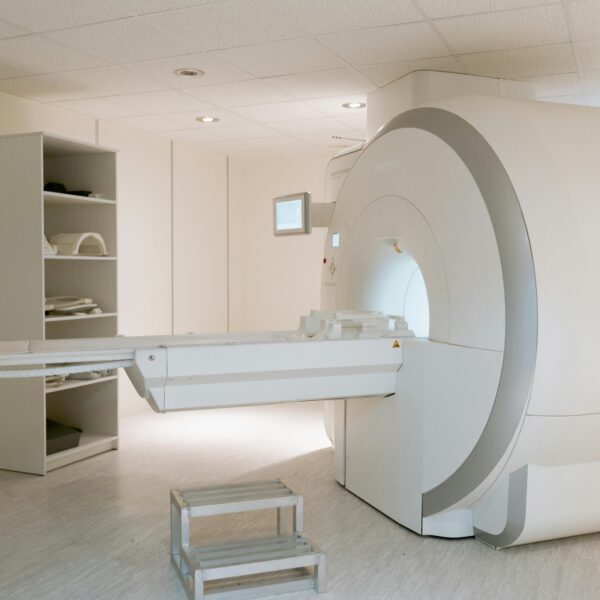In 1997, psychologist Arthur Aron developed a list of 36 questions that help couples develop or renew feelings of love. Every few years since then, the study becomes popular once more, leading to articles, musicals, TikToks, and more. This time around, we wanted to join in and talk about the other 36 questions: the 36 Questions of Healthcare Interviews.
Below we have the 36 questions that should be asked in every interview in the healthcare field. To stick to the original’s form, this set of questions will be divided into 3 sections, each with their own purpose and focus, and the questions will be split between 2 parties, the interviewer and the interviewee. While these are not the only questions that should be asked, these questions will let both parties know if there is a spark worth pursuing.
Section 1: Introductions
Names and resumes are a good start, but introductions need to go beyond that. Aron’s 36 Questions focused on creating scenarios where your answers needed to be succinct and honest while still allowing room for follow-up questions. A good thing to keep in mind when you are in the introductory stage of an interview, from either side, is that there is no perfect answer. Both companies and employees have answers they prefer to hear, but, ultimately, honest answers from either side ensure that only good matches move forward.
Company:
- What motivates your work?
- Tell me something about yourself that is not on your resume.
- What is your ideal workspace?
- What is the most interesting project you have ever worked on?
- What do you consider to be your greatest strength in the workplace? Out of the workplace?
- What is your least favorite interview question to answer?
Candidate:
- How long have you been with the company?
- What do you enjoy most about working here?
- Where do people usually eat lunch?
- What company events happen during the year?
- How would you describe the company’s culture?
- What is your least favorite interview question to ask?
Section 2: Present
Before you cover the past, you want to talk about the present. While the past experiences and actions of a candidate or company are certainly important, it should be remembered that you are not interviewing the past. People and companies change with time and experience, so the past will be addressed, but it pays to get to know the person you are sitting across as they are today before taking their pasts into account.
Company:
- What steps do you take when making decisions?
- How do you define hard work in the workplace?
- What attracted you to apply to this position?
- How would you colleagues describe you?
- What type of work or projects are you most interested in?
- What do you consider to be your greatest accomplishment?
Candidate:
- Can you tell me more about the team that I will be working on?
- What does the typical day look like?
- What are the behaviors of the most successful team members?
- How do you deliver feedback, both positive and negative?
- Will I be working with other departments? How often?
- Have there been any recent changes within the company?
Section 3: the Past and the Future
The past and the future go hand in hand. Now that you have a better idea about your future employer or employee’s present state, you can talk more about the past and the future. This is the time to focus on certifications, previous jobs, and employee retention rates.
When asking about the future, reference what you learned about your interview partner during the previous section to add a personalized touch to these questions. You want to let the people you plan to work with know what your expectations are and learn more about how you can hit your goals before you even start.
Company:
- Why did you leave your previous position?
- What do you want to do differently in this new job?
- Have you applied/interviewed for any other opportunities?
- Is there anything we have not touched on that you want to talk about?
- How do you set goals for the future?
- What is your timeline for getting started?
Candidate:
- Why is this position open?
- Where do you see this company in the next few years?
- What are some challenges you expect the company to experience in the next few months?
- Is there anything that concerns you about my background being a fit for this role?
- What are the next steps in the interview process?
- Is there anything I can do to make getting started easier?
Interviewing is an ever-changing science with constantly shifting variables. That being said, Radius Staffing Solutions has extensive experience with interviewing across all platforms of healthcare, at all different levels of experience, from both the company and the candidate sides. This list is a great place to start for preparation, but if you are looking for help to find the right candidate for company for you, then reach out so we can help you one-on-one.
If you are a company looking to find new candidates, reach out to us here. If you are a candidate looking for a new career, then check out our job page here. If you are looking for something a little different than what is in our job board, then send us an updated resume here and we will connect you with a dedicated recruiter who will help you search for that fitting opportunity.











